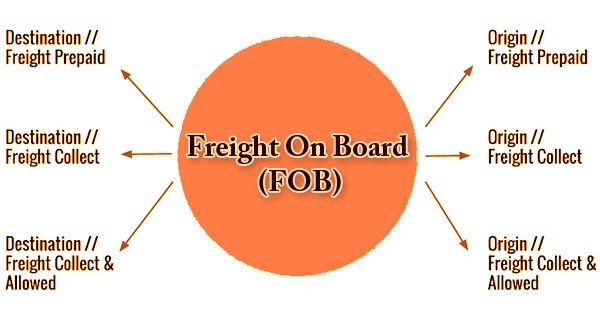Employee morale or workplace morale is described as an employee’s overall satisfaction, outlook, and feelings of well-being in the workplace. It has been shown to have a direct influence on productivity. Employee morale, in other words, is how satisfied employees feel about their work environment. An employee that is fulfilled and propelled at working environment generally will in general have a higher assurance than their partners. Employee commitment and representative fulfillment assume a significant part for representatives to be cheerful in their working environment. Higher-moral employees display higher productivity, while lower-moral employees show lower productivity. Employee morale is a difficult idea since it requires several variables that impact their morale.
Morale is a state of mind or demeanor of people or gatherings which decides their ability to co-work. It is a significant piece of an authoritative atmosphere. It is an indispensable element of authoritative achievement since it mirrors the perspectives and slants of hierarchical individuals towards the association, its targets, and arrangements. Employee morale will decide how successful a business is. Employees with high morale have a stronger mindset, achieve higher levels of customer support, and are more efficient in general. Helpless representative resolve decreases profitability adversely influences different workers and clients and diminishes productivity.
High morale has been shown to be a powerful predictor of success in all organizations, long used by the military as a “mission-critical” indicator of the psychological readiness of troops. In terms of productivity, profitability, consumer loyalty, and worker welfare, comprehensive research shows its advantages. Employee morale is crucial to association culture a positive aggregate mentality will establish a positive workplace for everybody. A significant level of resolve builds profitability. Obviously, there are different elements that may influence profitability, however high employee morale inside an association will assist the organization with accomplishing results. The way businesses assess this can differ, but in order to evaluate the current level of satisfaction, it is typically calculated by using surveys and performance reviews.

(Example of Employee Morale)
Here are the reasons why high employee morale is important:
- Increases productivity and efficiency: They will work more successfully and productively when workers appreciate the work environment. Employees with high morale like to go to work.
- Increases quality of work: Employees with high morale produce better work than those with low spirits.
- Provides a competitive edge in times of crisis: Employees with high morale offer a competitive edge to a company. If a company is going through a recession, for example, enduring such a crisis is much easier when the morale of workers is high. Employees work together to pull things out. High employee morale therefore will help protect a business from the crisis.
- Retains and attracts talent: Normally, employees need to work and remain at an organization with a decent workplace. An outstanding workplace prompts higher representative resolve, holding, and draws inability.
- Reduces costs: High employee morale decreases injuries at the workplace, reduces absenteeism, reduces tension, and reduces the amount of leaves paid by an employee.
By estimating morale with employee overviews numerous entrepreneurs and directors have for some time known about an immediate, causative association between that confidence, (which incorporates work fulfillment, assessments of their administration, and numerous different parts of the working environment culture) and the exhibition of their association. Some social scientists consider morale to be an individual’s feeling, while others view it as a “group feeling”. The value of morality is unanimously accepted by almost all scientists because it is the cornerstone of a sound behavioral environment.
Here are some ways to boost employee morale:
- Celebrate accomplishments: It is important to reward workers for their achievements. Take the time to offer constructive feedback and appreciate employee successes and progress. Employees can show more respect for their work by doing so.
- Respect employees: Employees are some of the time intensely sabotaged. Approaching Employees with deference and causing them to feel like they are the organization’s most significant assets goes far in improving worker assurance.
- Communicate: Be as open as possible with your colleagues. Communicate regularly and take what an employee says into consideration.
- Offer competitive benefits and compensation: Provide advantages and rewards for rivalry. Employees that are paying benefits and salaries that are competitive in the industry or above the average in the industry show substantially greater employee morale.
- Provide employee perks: Provide personnel with incentives such as dental care services, eye care programs, primary care programs, health programs, fitness facilities on-site, etc.
- Empower employees: Enable employees to engage themselves and feel like they can settle on choices about their work.
- Provide career path: Offer a straightforward career direction to employees. Ensure that they know how they will advance in the business and what the career pathways inside the company are achievable.
- Offer mentorship: Provide coaching and mentoring for staff. This would help them feel more in-tune with the business and allow them to better respect their boss.
In these respects, employee morale proves to be harmful to the organization. Morale can push a company forward or can contribute to dissatisfaction with workers, poor job results, and absenteeism. There should be an attempt to determine the cause and establish methods to turn it around when low morale occurs. Some key angles that may influence spirit are: remuneration, workplace fitness, work security, vocation advancement openings, administrator’s mentality, and preparing and information improvement openings, among others.
Failure to solve this problem leads to lower efficiency, higher absenteeism rates and related costs, increased organizational disputes, increased customer or consumer complaints, and higher employee turnover rates and costs associated with recruiting and training of replacement employees. Indisputably, it very well may be said that confidence is the state of mind or inner sensation of fulfillment from work, a sensation of fortitude, energy, and excitement. Resolve influences the disposition and consequently the occupation fulfillment.
Information Sources:
















